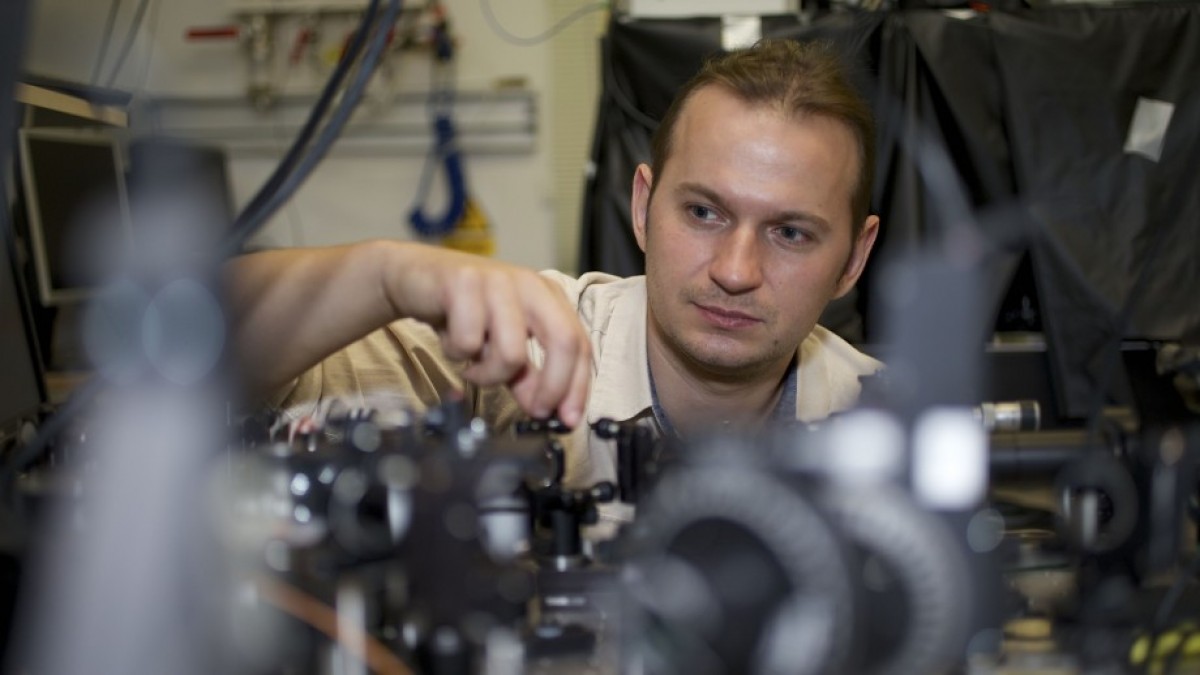Since February 2020, Dr. Sergey Kruk from the Australian National University is workingin the group of Prof. Thomas Zentgraf at the University of Paderborn in the field of non-reciprocal nano-optics.
Optics in the 21st century is currently undergoing revolutionary changes, driven by new possibilities for nanostructuring optical materials. So far, a large number of properties and functionalities can already be realized with the help of nanophotonic elements and systems, such as complex holographic imaging, non-linear light generation and topological light modes. However, an important problem that still exists is the non-reciprocal optical response at the nanoscale. The term "reciprocal" is a derivation of the Latin words "reque proque", which means that a process "goes the same way backwards as it does forwards". Non-reciprocity is a property of systems with a time-reversal asymmetry that creates different signal ratios when sources and detectors are swapped.
With his research, Dr. Kruk investigates non-reciprocal systems on the nanoscale and thus contribute to new optical components for optical telecommunications and quantum information processing. His research stay is funded by a Humboldt Research Fellowship for postdocs from the Alexander von Humboldt Foundation for a period of two years.
The Alexander von Humboldt Foundation is a non-profit foundation of the Federal Republic of Germany to promote international cooperation in research. It promotes scientific cooperation between foreign and German researchers and supports the resulting scientific and cultural connections [source: Wikipedia].

